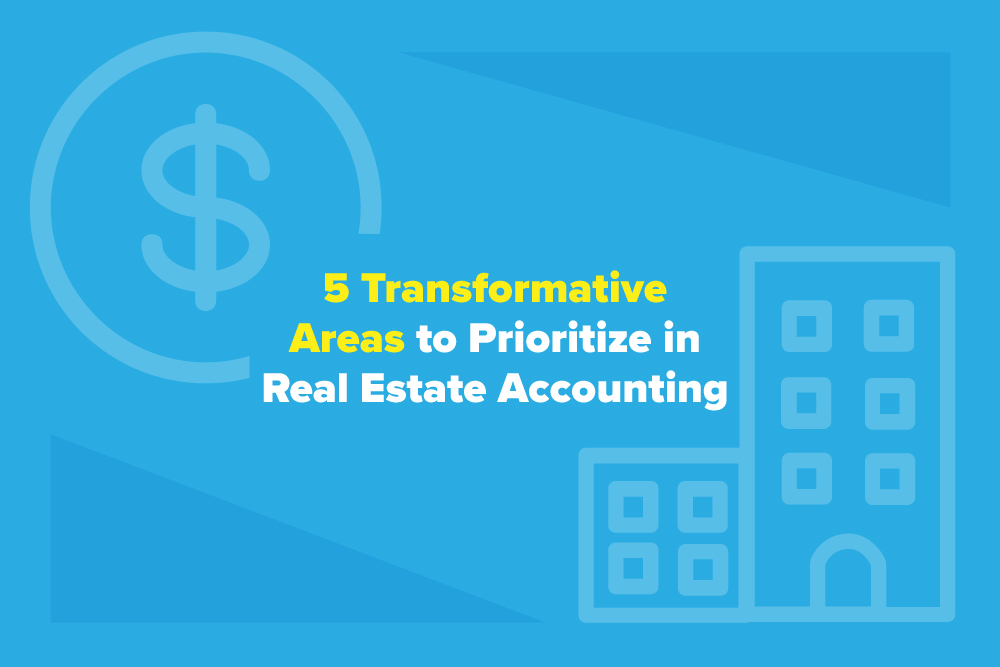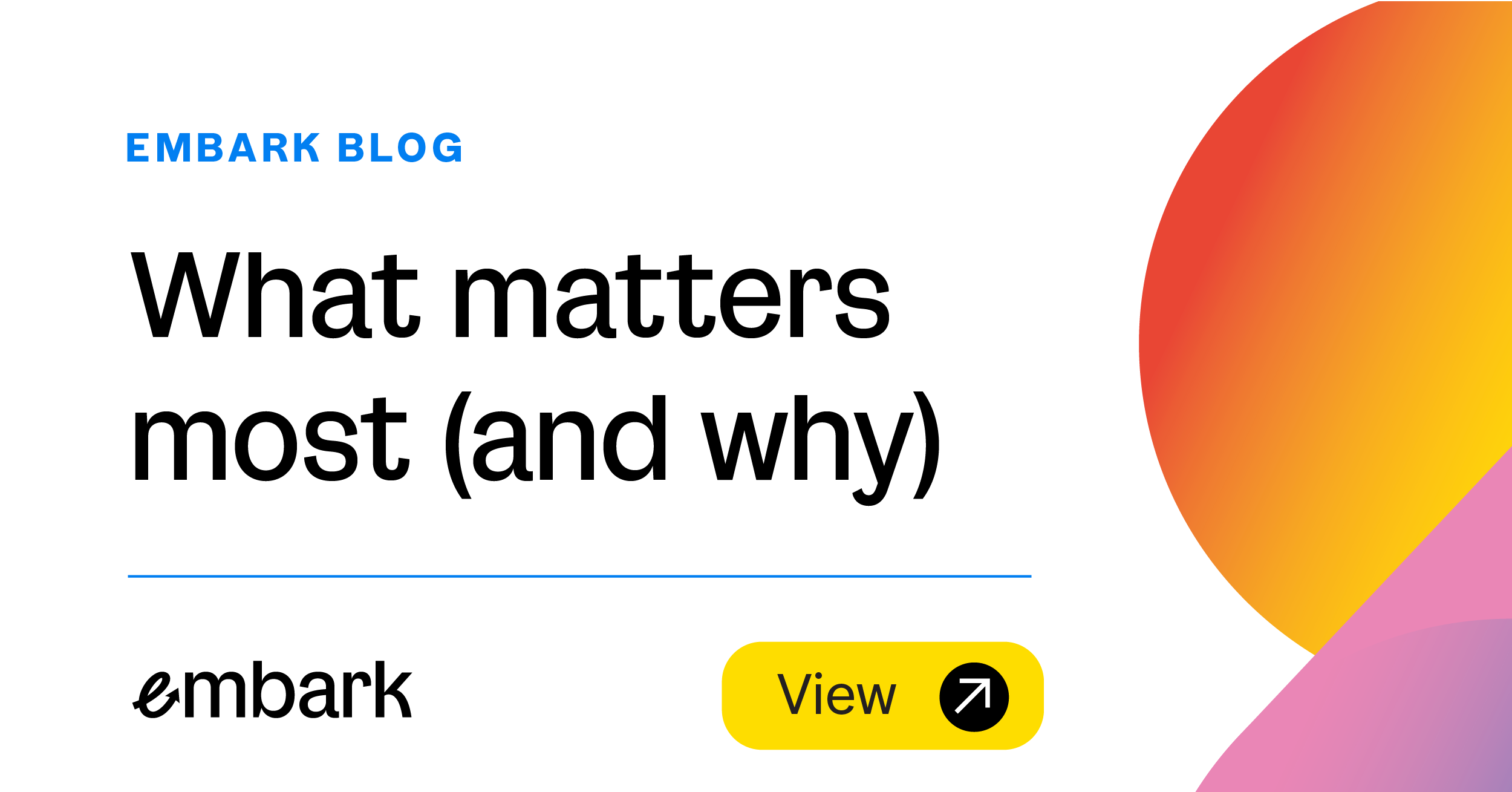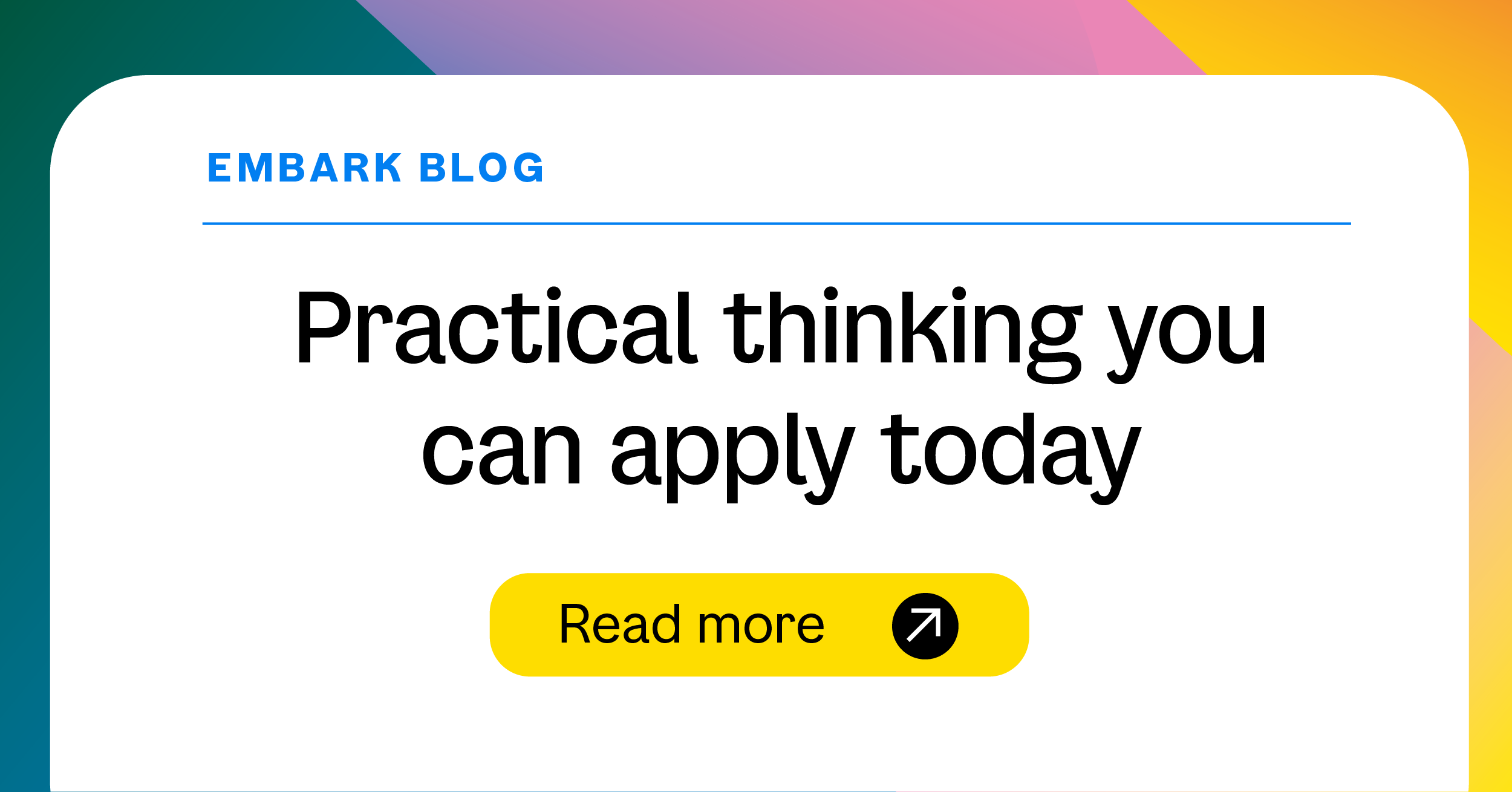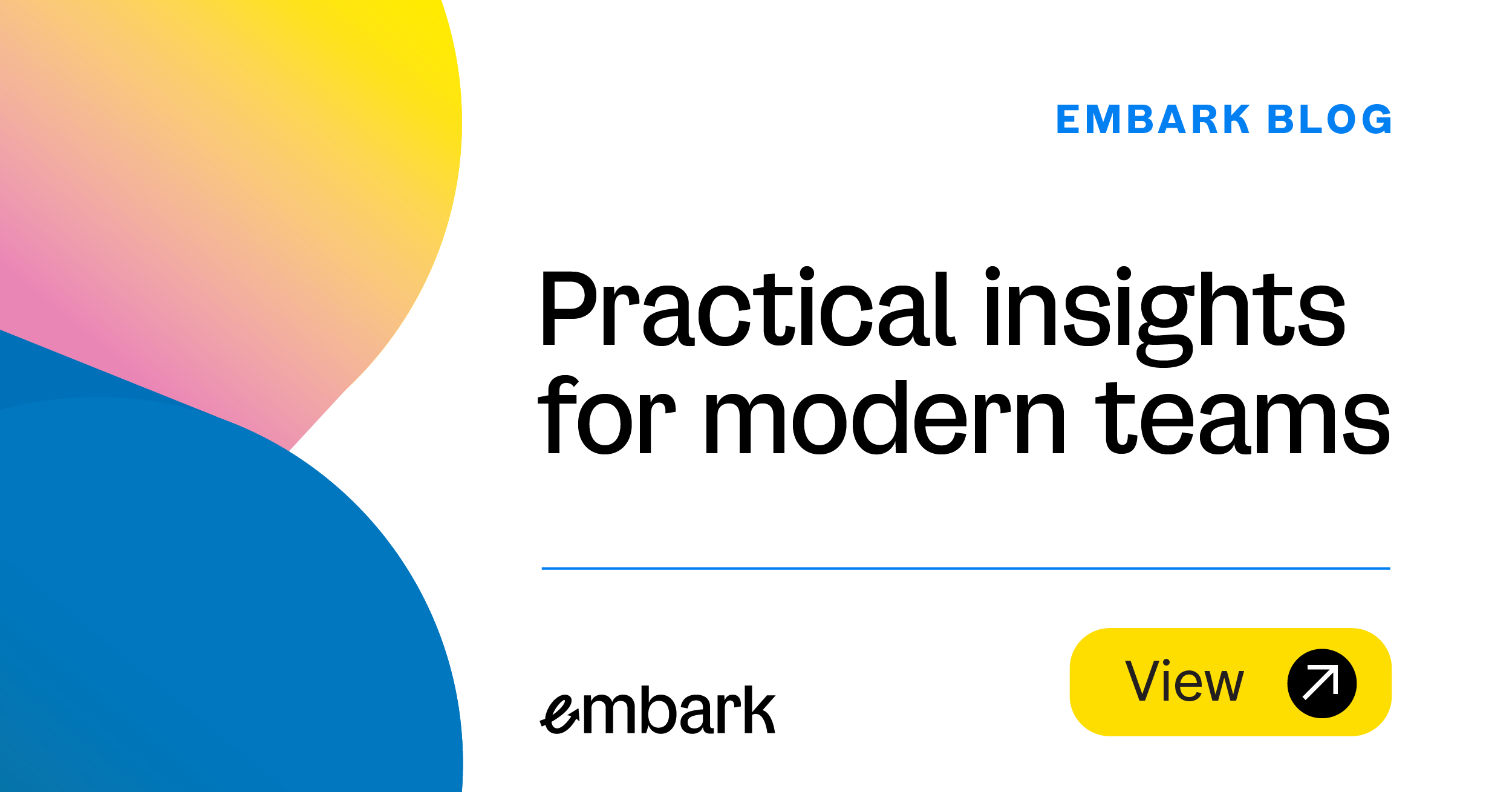Real estate might be as old as commerce itself but that shouldn't cause you to think it’s static and stodgy like that old and tattered Dickens novel sitting on your bookshelf. In fact, just the briefest of looks at the intricate, layered, and nuanced nature of real estate accounting reveals a dynamic and vigorous pulse that screams for newfound efficiencies and insights wherever and whenever possible.

If you're at all familiar with Embark's view of digital tools and how they can breathe new life into a vast spectrum of accounting processes and procedures, you probably already know where we are heading with this. Granted, our experience and expertise in nearly every facet of those financial tools naturally make us biased towards their revelatory power but, in the case of real estate accounting, we're not just whistling Dixie, our friends.
To that point, join us as we take a look at five distinct areas of real estate accounting that can greatly benefit from the implementation of various digital tools. Between backend processing, lease management, financial planning and analysis (FP&A), purchase price accounting, and investor relations, real estate accounting is a complex endeavor that relies on synchronized data and efforts for accuracy and reliability.
Give us a few minutes and we will show you how digital transformation can deliver more accurate information, reduce risks, maximize efficiency, and provide ownership the data needed for making quick and sound decisions. It’s a brave new world in the real estate sector with amplified risks and higher expectations. Leveraging the innate power of innovation, however, will help nearly any real estate entity better chart a reliable, transparent, and successful course.
Desperate for Something Better
Real estate accounting is nothing if it's not complicated and utterly reliant on synchronized information and effort. Beginning at the property level, where a management team is responsible for tenant and lease management, maintaining accurate rent rolls, keeping a thorough understanding of lease timelines and GL items, and a whole host of other responsibilities, there's plenty that can quickly go astray.

Depending on the company, that team could very well be off-site – sometimes even states away from the property itself – which only adds to the potential for mishaps and misstatements in the information they are tasked with rolling up and sending up the food chain to the corporate level. This places further importance on the need for accurate and timely data.
From there, corporate accounting uploads all of that data into the corporate GL, adding additional activities and information like debt and equity. Along the way, they meticulously check for errors in the property level accounting and, if found, begin a back-and-forth to resolve discrepancies that would have been far easier on both resources and patience if the data was accurate to begin with.
When stakeholders are waiting for that accurate data to base decisions upon, it's not a stretch for Embark to say bad things can, and do, go down. Unless the numerous handoffs and roll-ups are smooth as silk and error-free, tempers can flare and auditors frown as the information that the entire organization relies upon becomes a source of concern and anxiety rather than the solid footing for decision-making that it should theoretically provide. An inaccurate or outdated rent roll alone is enough to ruin a perfectly good audit and, unfortunately, that’s just one of the seemingly innumerable examples of things that can, and often do, go wrong over the winding and crowded path of real estate accounting.

Yes, we could go on and on about the many risks and potential information gaps between teams and departments that can wreak havoc at any point within the real estate accounting process, but we're pretty sure you get the point by now. The industry is desperate for something new, something better and innovative that mitigates all that risk and creates efficiencies that lend themselves to better decision-making.
That notion, of course, is precisely where digital tools and transformative efforts can play such a pivotal role in reinventing real estate accounting for the modern marketplace. Keeping in mind the laborious and complicated process we just detailed, the following areas stand to benefit the most from an infusion of technology or process redesign that can help propel the entire industry towards a prosperous and robust future.
Backend Processing
Paying particular attention to the property level, the many opportunities for misstatements might not be exclusive to real estate but, thankfully, certain digital tools and processes are especially useful in the backend processing for real estate accounting. The handoffs between the property and corporate levels alone are rife with the opportunity for human error, let alone the labor-intensive process of transferring data from one group to another as well as the many roll-ups and consolidations that are typically involved when the critical information migrates onward and upward.
Digital tools allow organizations to automate nearly all of this process, saving time and money while reducing risk exposure and increasing reliability. Something like robotic process automation (RPA), for instance, can automate the voluminous, repetitive tasks required to seamlessly move that data along its path.

Likewise, cloud computing can mitigate the negative impact of segmented data and information gaps by creating an inclusive information environment that provides control to access and links all of that data to maximize both speed and accuracy. If too many cooks in the kitchen can ruin a good meal, the same can be said for data and the number of people it passes through. Automating through technologies like RPA and cloud computing reduces risks while eliminating some of the manual controls that otherwise would be necessary to monitor and govern those many data handoffs. In this particular instance, less is definitely more and digital transformative tools can help reach those goals.
Lease Accounting
As the new lease standards take root and up the ante for sound lease information and reporting, real estate entities need a more efficient way to properly manage the sometimes overwhelming data involved with property leases. Information must be configured in a convenient and transparent manner for reporting purposes to avoid inaccuracies and material weaknesses that make stakeholders wince and regulators break out their bifocals.

Many tools can infuse lease accounting with a far more accurate, timely, and convenient data flow, managing all of that vital lease information through a centralized repository of data that inherently lends itself to better reporting, no matter how demanding the lease standards might get. Furthermore, the clear perspective and convenience provided by various digital tools allow ownership to identify which locations under their real estate umbrella are performing best, subsequently running reliable analysis to identify any new opportunities that would simply take too long if performed manually.
Given the intense competition for well-performing properties across the industry, time is very much money and the opportunity costs involved in prolonged and laborious processes could very well be the difference between building a successful portfolio of properties and scrambling to stay afloat.
FP&A
Budgeting and forecasting rely on actual data to form a more precise view of an entity's trajectory and goals relative to reality. If that data is inaccurate and outdated, those budgets and forecasts suddenly become unreliable and lack the factual gravitas needed for decision-makers to earn their keep.
Once again, an automated process that links data from the accounting group to the FP&A team can significantly increase the reliability of the data by eliminating the many risks involved at each handoff. Not only does this make the FP&A group for the entity more revealing and prescient, but it also frees valuable time and resources so team members can concentrate on more value-added responsibilities rather than the consuming task of migrating and checking data. Think about not having to worry about the source data; having downstream reports from accounting and others from the finance group using a different number for Total Revenue or Operating Margin is very troublesome!

For instance, those individuals can use that time to create dashboards that conveniently display critical KPIs for decision-makers to analyze and ultimately weigh other investments that impact everyone involved as well as, obviously, the growth that the enterprise was established to accomplish in the first place. Digital tools help FP&A team members be more efficient and effective at their jobs while creating additional insights that better inform all future decisions.
Purchase Price Accounting
No discussion on real estate accounting is complete without a little talk about due diligence thrown into the mix. Needless to say, any potential purchase demands adequate due diligence to protect the purchasing party from the inherent risks in the transaction. Buyers must always run their own numbers based on relevant market data that's consistent and never skewed by one-off items that can easily alter perspectives and heavily influence purchasing decisions.
Digital tools can make the due diligence process far more accurate, significantly reducing the risks posed to the buyer and, just as importantly, taking proper care to account for all of the information used throughout the transaction. What would ordinarily be labor-intensive and headache-inducing becomes streamlined and transparent through these tools that lend purchase price accounting the accountability and accuracy needed to create flawless, transparent, and informative reports.
Investor Relations
Ownership in a real estate venture isn't always straightforward and consolidated. Various groups from various investors might all have a stake in the proverbial pie at any given time, each requiring monthly or quarterly information decks that keep them apprised of their investment. While the format of that information might change from group to group, the importance of timely and reliable data is consistent throughout and is an indispensable component to making sound investment decisions.

As discussed in previous points, automated processes and cloud computing that link real data to those information decks can save time, money, and effort for those involved. Likewise, all of that information can be collected and distributed in highly digestible formats that make it more relevant for decision-makers when weighing other business opportunities for the venture. Imagine not having to update a quarterly deliverable for a number that appears 200 times throughout just because of a late transaction!
How Embark Can Help
Real estate accounting relies on different levels and numerous hands to create an accurate and harmonious data flow that adheres to standards and satisfies the many involved stakeholders. Thankfully, with the rise of digital technologies throughout the sector, real estate entities now have the tools needed to create more accurate and complete information while simultaneously reducing risk and maximizing efficiency.
Luckily for you, your friends here at Embark happen to be experts across the many facets of digital finance and can infuse your real estate accounting with efficiencies and impact that were once the fuel of an accountant’s daydreams. Between backend processing, lease accounting, FP&A, purchase price accounting, investor relations, and the many other components of real estate accounting, Embark’s Digital Finance team can roll up its sleeves on a moment’s notice, find areas across your accounting processes best served by innovation, and create impactful solutions.
Harkening back to our original thesis, there’s absolutely nothing slow and static about the demands of real estate accounting, so neither should be the tools you use to tackle it. Contact Embark and we’ll show you a new and better way.







